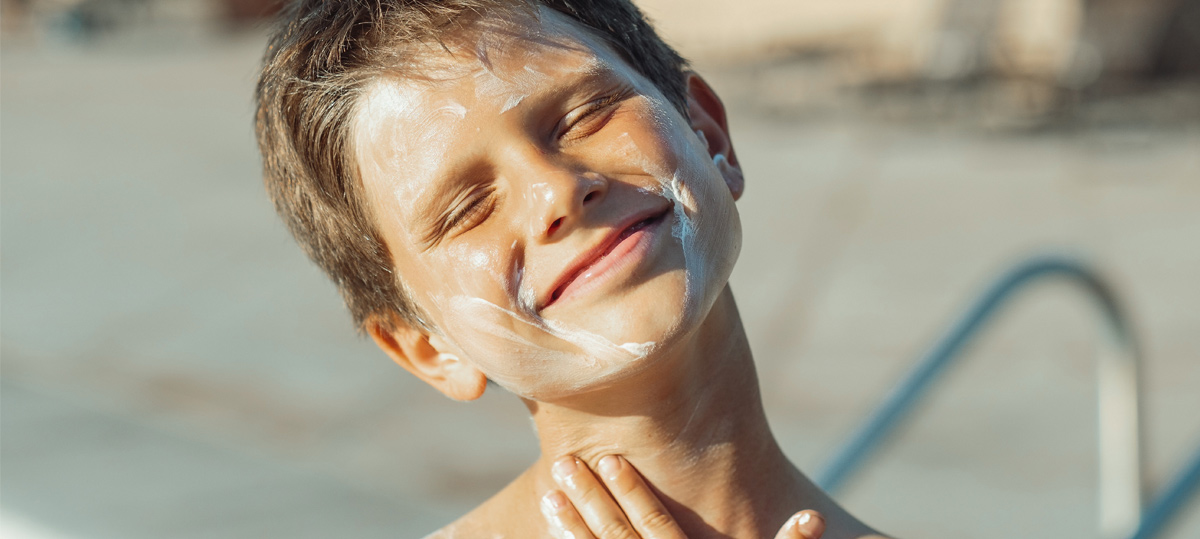Summer has arrived and the temperatures outside keep going up. With the warm summer weather comes fun outdoors. Keeping your skin healthy and cancer free is critically important when you are spending time outdoors.
Skin cancer is the most common cancer in the United States. According to the American Academy of Dermatology, one in five Americans will develop a skin cancer in their lifetime.
There are things you can do to reduce your risk of developing skin cancer. UV exposure is the single most important preventive risk factor for developing skin cancer.
When you are outdoors, apply an SPF 30 or greater sunscreen to your body at least 15-30 minutes before going outside. Remember that even on cloudy days, up to 80% of the sun’s UV rays can penetrate the clouds. Sunscreen is recommended for all people over 6 months of age. Children under 6 months should be protected by clothing and shade. If neither are available for children under 6 months, the use of sun protection products with titanium dioxide or zinc oxide are preferable and should only be applied to areas not covered by clothing such as the face and backs of hands.
Remember the teaspoon rule of sunscreen application. Apply 1 teaspoon to the face and neck, 2 teaspoons to the front and back torso, 1 teaspoon to each upper extremity, and 2 teaspoons to each lower extremity. If you are not using enough sunscreen to cover your skin you are not receiving the full SPF protection that is listed on the bottle.
Remember to reapply sunscreen often- at least every 2 hours.
Aside from reduction in skin cancer risk, sunscreen is proven to reduce photoaging of the skin. Regular use of sunscreen can prevent and reduce wrinkle formation.
Additional ways to reduce UV exposure include dressing to protect yourself from the sun. The use of a wide brimmed hat, long sleeves, and sunglasses also protects your skin from damaging UV rays. Tighter knit clothing is more protective against UV rays than loose knit clothing. The sun is at its strongest from 10 AM to 2 PM, which is an ideal time to seek shade or go indoors.
If you develop changing or abnormal moles or skin lesions, it is recommended that you seek medical evaluation.
Bowdle Healthcare Center is available for all your healthcare needs- including routine skin checks and evaluation of new or changing skin lesions.
– Dr. Lacey Kessler
